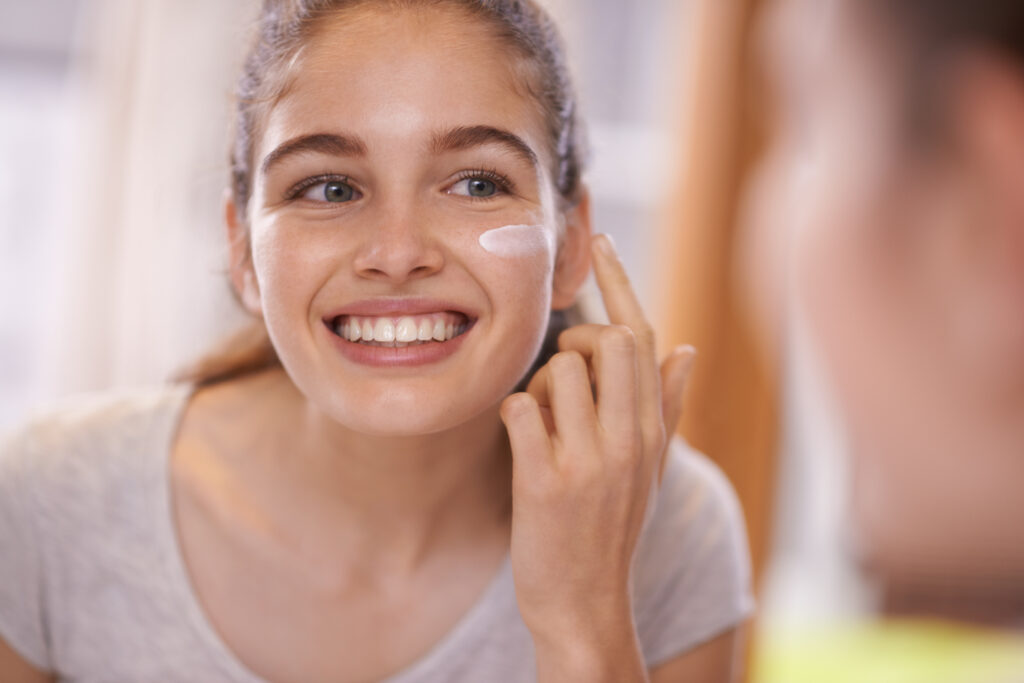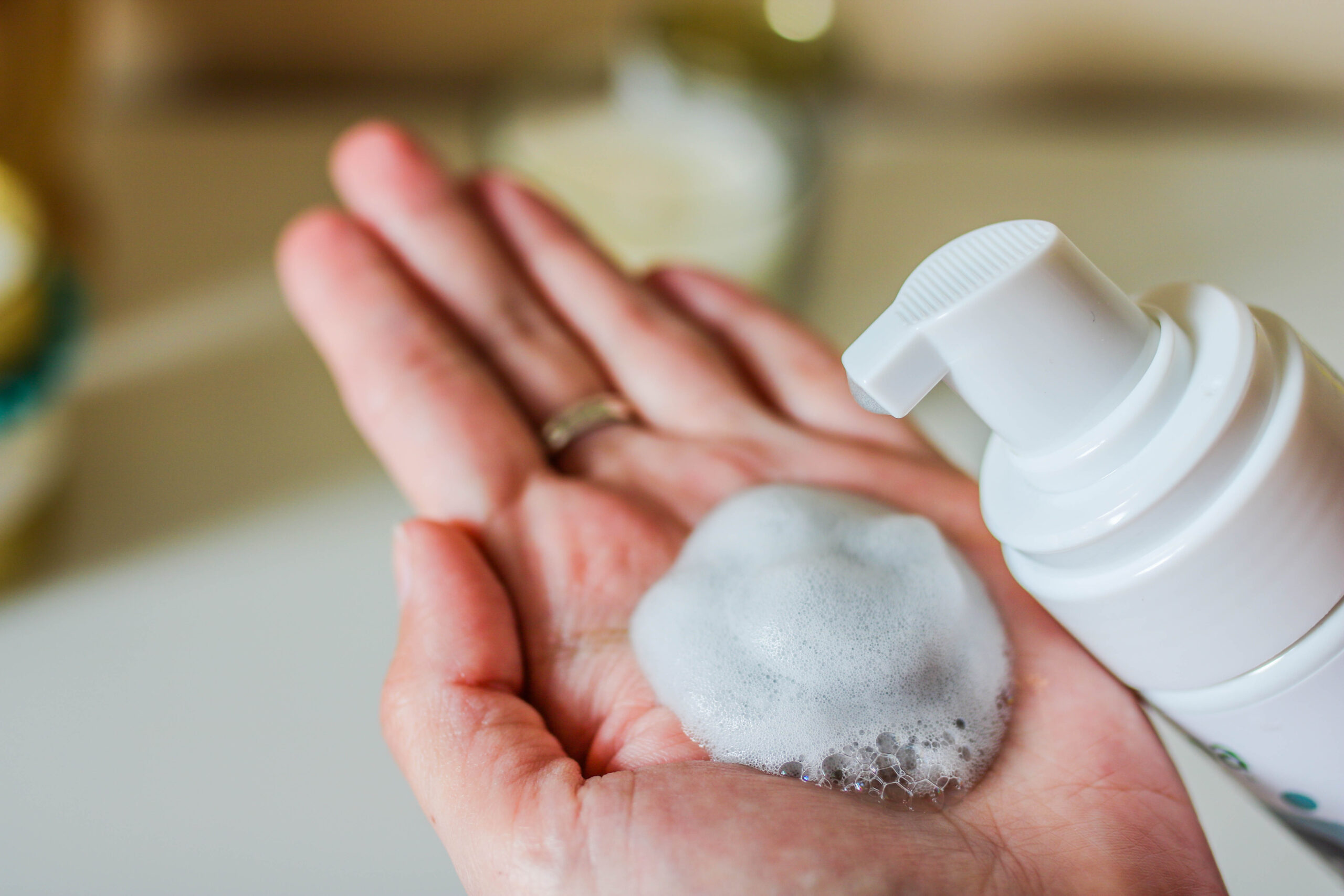How Cosmetics Are Regulated in the U.S.
Cosmetics and Personal Care Products Companies are Committed to Upholding Strict Regulations by the U.S. Food and Drug Administration (FDA)


Consumer safety is a top priority for cosmetics and personal care products companies, and manufacturers are committed to upholding strict FDA regulations as required by the Food, Drug, and Cosmetic Act (FD&C Act). The long-awaited Modernization of Cosmetics Regulation Act (MoCRA) of 2022 adds significant new authorities to the FD&C Act, advances product safety and innovation for the science-driven beauty and personal care industry and reinforces consumer confidence. As a result, the FDA will have new tools to regulate cosmetics and personal care products consistently.
Cosmetics companies take their safety responsibility very seriously and often surpass the requirements of the law with additional consumer safety measures such as ingredient/formula selection, consumer and clinical evaluations, stability testing, labeling, quality control and secure packaging choices.
Consumers must have confidence in the products they use and trust every day. The U.S. cosmetics industry invests millions of dollars in scientific research and development to support the safety and efficacy of approximately 2,000 new products introduced each year. Companies employ thousands of medical and scientific professionals – including chemists, toxicologists, biologists, environmental scientists and other experts – to evaluate, substantiate and ensure product and ingredient safety.
Science and Safety are the Cornerstones of the Industry.
As a result, of the billions of personal care products sold each year in the United States, there are very few adverse experiences reported to the FDA in a typical year. Of those reported, most are related to rashes or allergies. Cosmetics companies’ strong commitment to safety makes cosmetics and personal care products one of the safest product categories regulated by the FDA.
Cosmetics and personal care products companies have long provided more product, safety and technical information than required by law. Voluntary industry programs to support the FDA’s regulatory work included:
The enactment of the Modernization of Cosmetics Regulation Act (MoCRA) of 2022 makes many of the industry’s voluntary activities mandatory, increasing transparency and giving greater assurance to consumers that their products are safe.
About The FDA
The U.S. Food and Drug Administration (FDA) Has Broad Authority to Regulate Cosmetics and Personal Care Products
Strong federal safety requirements govern cosmetics and personal care products sold in the U.S. It is a crime to market unsafe cosmetics products. The U.S. Food and Drug Administration (FDA) and the U. S. Attorney General (AG) can take action against any company that markets an unsafe cosmetics product. The law provides severe penalties, including seizures, recalls, fines and bans, for cosmetics and personal care products manufacturers that do not meet these strict requirements.
DID YOU KNOW: All cosmetics and personal care products manufacturers are required by federal law to substantiate the safety of their finished products and ingredients.
The FDA has wide-ranging regulatory authority that helps to ensure the safety of cosmetics and personal care products. In the past, the FDA has infrequently had to exercise this power to limit or prohibit ingredients that it considered to be unsafe. Cosmetics and personal care products companies are committed to upholding strict FDA regulations.
The Federal Food, Drug, and Cosmetic Act (FD&C Act) of 1938 and the Modernization of Cosmetics Regulation Act (MoCRA) of 2022 requires that every cosmetics product and its individual ingredients be substantiated for safety and that product labeling be truthful and not misleading. Cosmetics manufacturers are responsible for ensuring that products comply with the law before they are marketed. This process includes analyzing a cosmetic ingredient’s testing and safety data. If the manufacturer is unable to substantiate the safety of a product, the law requires the product to carry a conspicuous warning stating that its safety has not been substantiated.
The law provides severe penalties for products that do not meet these standards. Specifically, the law gives the FDA authority to:
- Ban or restrict cosmetics ingredients for safety reasons
- Mandate warning labels
- Inspect manufacturing facilities and records
- Issue warning letters
- Seize unsafe or misbranded products
- Prohibit unlawful activities
- Prosecute and jail violators
- Mandate product recalls
- Collect samples for examination and analysis as part of cosmetics plant inspections, import inspections and follow up to complaints of adverse reactions
- Conduct research on cosmetics and personal care products and ingredients to address safety concerns
In addition to the FD&C Act and MoCRA, the Fair Packaging and Labeling Act authorizes the FDA to require ingredient labeling of cosmetics and personal care products sold to consumers. Detailed FDA regulations govern where and how ingredients must be listed on the package.
Cosmetics’ continued safety is ensured by the FDA’s regulatory program, as well as additional safety measures undertaken by the cosmetics and personal care products industry and the decades of safe use by consumers who trust and enjoy them every day.
FDA Also Has Authority to Regulate Personal Care Products That Contain Active Ingredients That Are Over-The-Counter (OTC) Drugs
Over-the-counter drugs (OTC) are subject to FDA approval. Generally, drugs must either receive pre-market approval by the FDA or conform to final federal regulations specifying conditions whereby they are generally recognized as safe and effective. Once a regulation covering a specific class of OTC drugs is proposed, reviewed and finalized (in what is known as an FDA OTC Drug Monograph), these drugs must either comply with the requirements of the monograph or be required to submit a New Drug Application (NDA) to the FDA for review and approval.
Cosmetic Companies’ Commitment to a Strong FDA
The cosmetics and personal care products industry supports a strong and vigilant FDA. The FDA has abundant regulatory and enforcement authority for cosmetics under the federal Food, Drug and Cosmetics Act (FD&C Act) of 1938 and the Modernization of Cosmetics Regulation Act (MoCRA) of 2022. Consumers benefit from having the FDA as a strong watchdog for their health and safety, and industry benefits when consumers are confident in the safety standards set by the Agency. Cosmetics companies work diligently to provide products that are safe, effective and comply with the provisions of the law.
How Cosmetics and Personal Care Products are Regulated in Other Countries
Cosmetic Safety is Ensured Worldwide
Throughout the world, cosmetic and personal care products manufacturers work to create and market safe and elegant products that help consumers to look and feel their best. To further ensure the safety of cosmetic products, different countries employ different measures to achieve this goal. However, the stringent regulations governing cosmetics in each country or jurisdiction, have one common goal: To protect the consumer by ensuring safe ingredients and finished products.
- View more information on cosmetic regulation in the EU.
- View more information on cosmetic regulation in Japan.
- View more information on cosmetic regulation in Canada.
Cosmetic Ingredient Dictionary
FDA/Company Cosmetic Registration Program
Previously, cosmetics and personal care products companies voluntarily participated in the FDA Voluntary Cosmetic Registration Program (VCRP).
The VCRP was an FDA post-market reporting system for cosmetics products and ingredients, along with their frequency of use, for manufacturers, packers and distributors of cosmetics products in commercial distribution in the United States.
Effective March 27, 2023, the FDA announced it no longer accepts submissions to the VCRP in preparation of launching a new platform for facility registration and product listings. The new system will better align with the reporting requirements of the Modernization of Cosmetics Regulation Act (MoCRA) and will help FDA in its mission to protect consumers and give cosmetics manufacturers and distributors access to valuable information that supports the safety evaluation of ingredients.
Participation in the VCRP was a key component of the Personal Care Products Council’s (PCPC) Consumer Commitment Code. The enactment of MoCRA makes many of the industry’s voluntary activities mandatory, increases transparency and gives greater assurance to consumers that the products they trust and use every day are safe.

